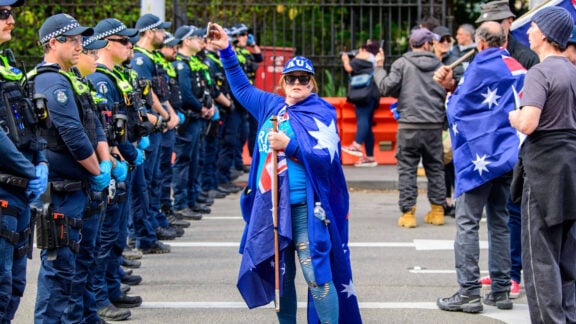From an economic perspective, three camps reflect divergent approaches to both policy and ideology that reveal the tensions within President Trump’s MAGA which run from modern conservatism to economic nationalism and populism in the United States. President Donald Trump watches them play off each other as they compete for his ear — it seems lessa strategy and more a game of pugilistic and competing visions which will, it seems, augment greater international economic uncertainty,
Economic Nationalists
This group echoes sentiments reminiscent of Steve Bannon’s influence and aligns, in some respects, with the traditional working-class focus seen in old Labor or Democratic Labor Party platforms. Their policy stance typically emphasizes protecting domestic industries and preserving welfare and social safety nets for the working class. However, the demographic and political clout of this group appears to be waning. Their vision of economic protectionism and redistribution can clash with global trade realities, potentially leading to market distortions if overemphasized. Nonetheless, they continue to influence debates on trade and immigration, framing these as essential tools to safeguard national sovereignty and employment.
Techno Libertarians
Technolibertarians, which figures like Elon Musk might exemplify, represent a more modern, data-driven approach to economic management. Musk, through DOGE, prioritizes efficiency through technological innovation and computer algorithms to cut costs, sidelining traditional notions of output efficiency in favour of rapid, algorithm-based decision-making.
Musk, through DOGE, prioritizes efficiency through technological innovation and computer algorithms to cut costs, sidelining traditional notions of output efficiency in favour of rapid, algorithm-based decision-making.
Their focus is on minimizing bureaucratic overhead and maximizing the performance of digital and automated systems. However, the reliance on algorithms can sometimes overlook qualitative aspects of productivity and broader socio-economic outcomes, potentially leading to a disconnect between raw financial metrics and overall societal welfare.
Traditional Free Market Conservatives
Although this group has seen a relative decline in favour recently, they remain an influential voice, albeit one that is adopting a more cautious stance. They stand for market liberalization, deregulation, and fiscal conservatism—ideals that historically championed minimal government intervention. Their current strategy seems to be one of wait-and-see, with many anticipating that upcoming midterm elections will provide clearer signals on the electorate’s appetite for free-market policies. Their hesitancy reflects both the changing political landscape and a recognition that the unbridled free market approach may no longer fully address the complexities of today’s globalized economy.
Intersecting Dynamics and Implications
The coexistence of these conflicting camps contributes to policy uncertainty. Economic nationalists and techno libertarians, for instance, may push in opposite directions—one favouring protectionist measures and social safety nets, and the other advocating for rapid, market-driven adjustments with minimal intervention. As traditional free market conservatives wait on the sidelines, the electoral outcomes—especially in the midterms—could reshape the ideological balance. A shift towards one camp over the others could lead to significant changes in regulatory frameworks, trade policies, and market interventions, affecting not just domestic economic performance but also global trade dynamics.
Market Reactions:
Investors and financial markets respond not just to concrete policies but to the underlying ideological shifts as well. The divergence between these camps may result in volatility as markets attempt to price in potential scenarios ranging from protectionist policies to disruptive technological reforms, and even a return to traditional market liberalization.
These three camps encapsulate a broader debate about the future direction of economic policy in a rapidly changing global environment. Their interplay will likely be a key factor in shaping policy outcomes and market confidence in the coming years.
*Tony Anamourlis is a tax law specialist in multi-national transactions, negotiating with the Commissioner of Taxation and other regulators.









